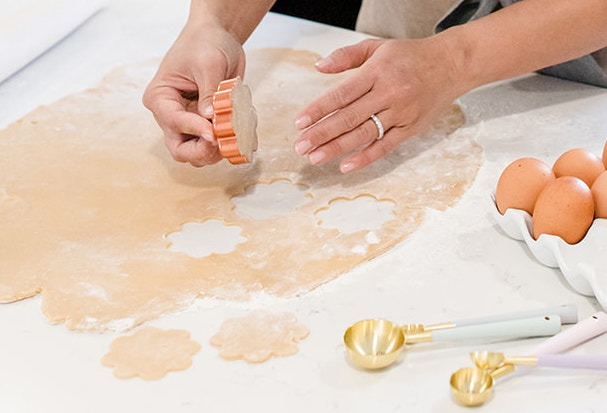Gluten-Free Eating and Gut Health: What You Need to Know
Hand + Heart Gluten Free
June 1, 2024

In recent years, the conversation around gut health has taken center stage in the wellness world. From probiotics to fermented foods, there’s a growing awareness of the crucial role our gut plays in our overall health and well-being. In this discussion, the topic of gluten-free diets has also gained lots of attention! But what exactly is the link between gluten-free eating and gut health? In this blog, we will discuss the connection and understand how gluten-free choices can contribute to a happier, healthier gut!
Understanding Gluten and Its Impact on the Gut
First things first, what is gluten? Gluten is a protein found in wheat, barley, and rye. For individuals with celiac disease, consuming gluten triggers an immune response that damages the lining of the small intestine. This damage impairs nutrient absorption and can lead to a host of symptoms, including bloating, diarrhea, fatigue, and weight loss. However, celiac disease represents just one end of the spectrum of gluten-related disorders. Non-celiac gluten sensitivity (NCGS) is another condition in which individuals experience similar symptoms to those with celiac disease but lack the autoimmune response.
The Gut-Healing Benefits of Going Gluten-Free
For those diagnosed with celiac disease or NCGS, eliminating gluten from the diet is not just a choice but a necessity. Doing so allows the gut to heal, reducing inflammation and improving overall digestive function. But what about individuals without gluten-related disorders? Is there a benefit to going gluten-free?
Gluten-Free Eating and Gut Health: What the Science Says
While research on the impact of gluten-free diets on gut health in individuals without celiac disease or NCGS is still evolving, it has been found that individuals with irritable bowel syndrome (IBS) experienced improvements in symptoms such as bloating and abdominal pain after following a gluten-free diet.
The Role of Gluten-Free Baking in Gut Health
So, where does gluten-free baking fit into the equation? For starters, gluten-free baking involves the use of alternative flours such as almond flour, coconut flour, and rice flour. These flours are often higher in fiber and nutrients compared to traditional wheat flour, which can contribute to improved digestive health. Additionally, many gluten-free baked goods are also free from other potential gut irritants such as artificial additives and preservatives, further supporting gut health.
Tips for Incorporating Gluten-Free Baking into a Gut-Healthy Diet
If you want to take advantage of the gut-healing advantages of gluten-free baking, here are some key tips to remember:
- Choose Nutrient-Dense Flours: Opt for flours that are rich in fiber and nutrients, such as almond flour, coconut flour, and quinoa flour. These alternatives not only provide a nutritional boost but also support digestive health. Hand + Heart has plenty of gluten-free flours to choose from for ALL of your baking needs.
- Experiment with Ancient Grains: Ancient grains like quinoa, amaranth, and teff are naturally gluten-free and offer a wide range of health benefits. Incorporating these grains into your gluten-free baking experiments can add variety and nutritional value to your diet.
- Focus on Whole Foods: When baking gluten-free, aim to incorporate whole, unprocessed ingredients whenever possible. This means using whole grains, nuts, seeds, and fruits to add flavor, texture, and nutritional value to your baked goods.
- Mindful Substitutions: When adapting recipes to be gluten-free, be mindful of ingredient substitutions. While gluten-free flours can often be used as a 1:1 replacement for wheat flour, you may need to adjust other ingredients such as leavening agents and binders to achieve the desired texture and consistency.
- Enjoy in Moderation: As with any dietary change, moderation is key! While gluten-free baked goods can be a delicious addition to a gut-healthy diet, it’s important to enjoy them in moderation as part of a balanced eating plan.
The Takeaway
Incorporating gluten-free baking into your diet can be a delicious way to support gut health. By choosing nutrient-dense flours, experimenting with ancient grains, and focusing on whole, unprocessed ingredients, you can create a variety of delicious treats that nourish your body from the inside out. Whether you’re living with celiac disease, NCGS, or simply looking to optimize your digestive health, embracing gluten-free baking can be a tasty step towards a happier, healthier gut!
Don’t forget to follow us on Facebook and Instagram for loads of tips tricks and recipes!


